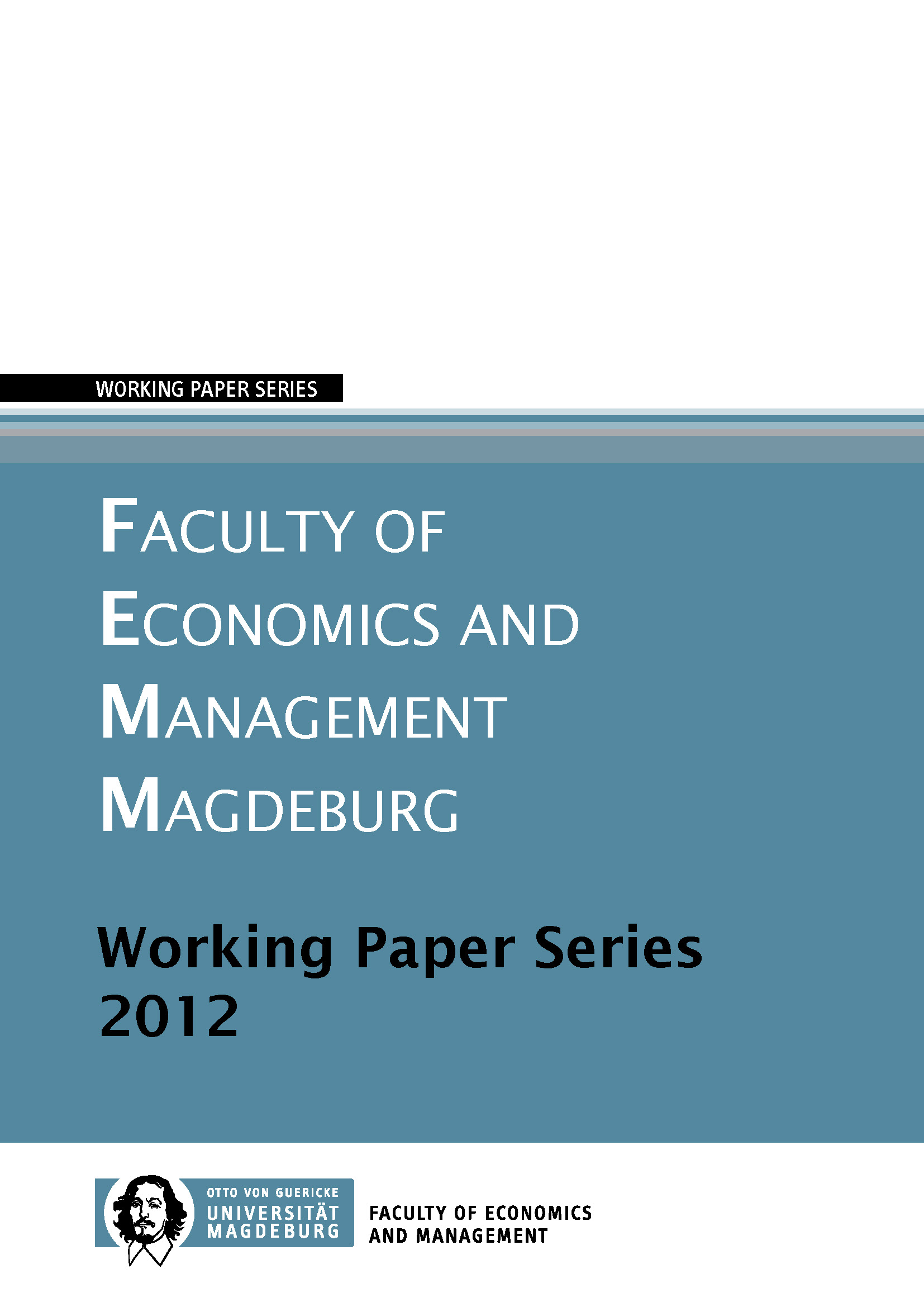Bargaining power does not matter when sharing losses
Experimental evidence of Inequality Aversion in the Nash bargaining game
DOI:
https://doi.org/10.24352/UB.OVGU-2018-486Schlagworte:
bargaining, losses, inequality aversion, experimental economicsAbstract
While experimental research on social dilemmas focuses on the distribution of gains, this paper analyzes social preferences in the case of losses. In this experimental study, participants share a loss in a Nash bargaining game. Instead of monetary losses, we use waiting time as an incentive. We assume that participants prefer less to more waiting time. Our experiment consists of four versions of the Nash bargaining game, which vary in a way that allows a comparison of four classical concepts on negotiations (Nash, Equal Loss, Equal Gain, and Kalai-Smorodinski), and Inequality Aversion. We find an equal split of waiting time for all parameter variations. Therefore, our experimental evidence shows that Inequality Aversion provides a better prediction than do classical concepts for the outcome of a Nash bargaining game involving losses. Furthermore, participants resort to Inequality Aversion at the cost of overall welfare.


